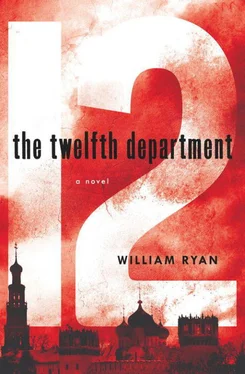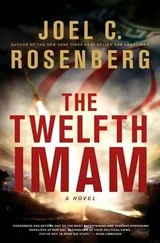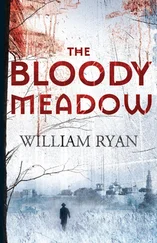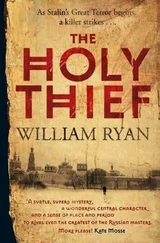Hubert nodded and Korolev lowered himself into the nearest chair, his tired body celebrating at not having to stand for a few minutes at least. He looked between Madame Shtange and the greyhound and wondered where to begin. Hubert returned his gaze with a watchfulness that suggested that the Frenchman wasn’t in favor of the meeting, and Korolev hoped that meant Anna Shtange might be more cooperative than he’d first thought.
“Madame Shtange,” he said, after a moment or two, “I’m sorry about your husband. I’m afraid I’ve only just been asked to look after the case—I’m not sure what you’ve been told but I’ll be happy to answer any of your questions, as far as I can at this stage.”
She smiled, but it wasn’t a smile that had much warmth to it. She didn’t look like she’d slept much in the last two days.
“I’ve been told almost nothing.” Her voice cracked on “nothing.” “I’ve been told that my husband was murdered. That I should come to Moscow. That I should stay in this hotel. I was told that under no circumstances was I to visit his apartment, the university, or the institute. Nor was I to contact anyone, in Moscow or Leningrad, and certainly not in France. That if I failed to comply with any of these instructions it would cause complications—which I took to mean complications for me and my sons. That’s all I’ve been told.”
Korolev found his eyes wandering to the greyhound, who nodded. He didn’t bother to smile this time.
“You’re wondering why I contacted the French Embassy?”
“That’s not my business, Madame Shtange. I’m just a Militia detective. I know nothing about these instructions either.”
She lit up another cigarette, her fingers shaking.
“If it weren’t for my husband I’d have left this place years ago. I want to go home—I don’t want our children to grow up living in fear.”
Korolev, thinking of Yuri, was unable to answer. His throat felt strangely constricted and he was only able to watch as she crushed the barely smoked cigarette into the pile of those she’d already disposed of. Then she reached for yet another.
“So I’ve been waiting for someone to tell me something about his death and, still, nobody tells me anything. And then this morning, finally, I was told you’d be coming to see me. Not why or when or who you were—just that Captain Korolev would be coming to see me.”
“I only found out you were in Moscow this morning,” Korolev said.
“I believe you,” she said. “Nothing surprises me about this place anymore. If it will help, I’ll tell you what I can. But first, did he suffer? Can you at least tell me if he suffered?”
She reached forward and Korolev felt the weight of her fingers as they rested on his.
“It was quick,” he said, deciding she deserved to know this at least. “The pathologist thinks death happened almost immediately, so there wouldn’t have been time for him to have suffered much. Did they tell you how he died?”
She shook her head.
“As far as we can tell he opened his door to his attacker and then was stabbed a number of times. There were very few defensive wounds, so the pathologist believes he probably wasn’t fully aware of what was happening. One of the first blows seems to have cut the artery in his throat. He was also stabbed twice in the heart. He was probably dead before he fell.”
Her mouth was a little round circle of shock and Korolev thought he might have said too much.
“I’m sorry, but you can see the body this afternoon if you wish—it’s as well to be prepared. It looks bad, but, as I said, if he was aware of anything, it was only for a matter of seconds.”
She looked at him for a long moment and then turned her head to look across the river toward, coincidentally, the very window Professor Azarov had been looking out of when he’d been killed. Korolev wondered if she knew it was where the professor had lived.
“Thank you.” She whispered the words so quietly that Korolev wondered whether he was meant to hear them. “You’re an unusual Chekist.”
“I’m a Militia detective, Madame Shtange.”
She examined him, taking in his shirt, his jacket, his battered face, and while he held her gaze he wished he were able to look away. It was as if she were looking right into his soul, and he liked to keep his soul to himself.
“No, I see that now,” she said eventually. “Ask me your questions then, Captain Korolev. I’ll answer them.”
Korolev took his notebook from the pocket of his jacket and flicked through its pages till he found an empty one.
“Did you know your husband’s colleague, Professor Azarov, was also murdered? The day before?”
“Arkady told me. On Monday, when he found out.”
“I interviewed him on Monday—your husband that is. I was sorry to hear of his death. I liked him, if you don’t mind my saying.”
“He was a good and honest man whose fate it was to live at a time like this—and in a place like this. That was his tragedy.”
Korolev looked hard at his notebook and decided he hadn’t heard her. She might be able to say such things, with someone from the French embassy sitting alongside her and a French passport in her pocket—but he couldn’t hear them, not with a Soviet identity card sitting in his.
“We aren’t convinced the two murders are connected,” Korolev continued, “but it certainly isn’t something we’re ruling out. Now, it was clear from my discussion with him on Monday that your husband didn’t like the professor. Not one bit. And I understand the professor felt the same.”
“Arkady despised him, but he’d nothing to do with Azarov’s death. He was at work when it happened, he told me so.”
“Yes, we know where he was. But you must understand we have to look into their relationship.”
She nodded. “I understand, and the truth is if Azarov hadn’t been dead at the time of the murder, I’d have been certain he was my husband’s killer. Arkady was on the point of exposing him and the professor knew it.”
“Exposing him?” Korolev said.
“Azarov achieved his position by his willingness to condemn as a traitor or saboteur anyone who stood in his way or opposed him. He also lied through his teeth about everything he’d achieved and might achieve. Once he started working for State Security on his so-called breakthroughs he found he’d a receptive audience for his lies and his accusations. And after that, anyone who disagreed with him was sabotaging State Security itself—with predictable consequences. But my husband was appointed to verify Azarov’s claims and Azarov couldn’t deal with him the way he’d dealt with the others.”
“Who appointed him?”
“Arkady couldn’t tell me. Someone senior enough that Azarov couldn’t act against him openly without looking like a rogue. Whoever it was, I’m not sure they were bothered about the morality of the research—I suspect all that interested them was why there’d been so little recent progress and, perhaps most importantly, where all the money had gone.”
Korolev looked down at his notes, underlining some points he wanted to come back to.
“Money?”
“A lot of money—there was equipment to be bought, of course, and salaries to be paid but, even so, the amounts didn’t make sense. Or so Arkady said. He put it all in his report. That’s why, when Azarov died, he thought it was all over—that he could come back to Leningrad.”
“So he’d finished this report of his?”
“Yes.”
“And it was critical of Professor Azarov?”
“Most definitely. I never saw it, you understand, but it couldn’t have been any other way, from the conversations I had with Arkady. He couldn’t give me details—but he told me the gist of it. I should have told him to drop it, shouldn’t I?”
Читать дальше












